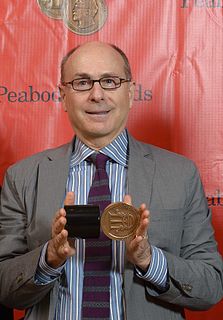A Quote by Donald Hall
I have written some poetry and two prose books about baseball, but if I had been a rich man, I probably would not have written many of the magazine essays that I have had to do. But, needing to write magazine essays to support myself, I looked to things that I cared about and wanted to write about, and certainly baseball was one of them.
Related Quotes
Someone wanted me to write a profile for ESPN about the commissioner of baseball, and I said, "He's just some suit! Some Republican. No!" I mean if you want me to write about baseball, boxing or football, I'll write about those things because I watch them, I think about them a lot and I like them. But I don't want to write about Barry Bonds.
I liked to write from the time I was about 12 or 13. I loved to read. And since I only spoke to my brother, I would write down my thoughts. And I think I wrote some of the worst poetry west of the Rockies. But by the time I was in my 20s, I found myself writing little essays and more poetry - writing at writing.
I often encountered books by academics and others who had not actually done what they had written about. They tend to create artificial simplicity; their prose doesn't have the vigor of "lived words." On the other hand, many practitioners lack the context or introspection to make their experiences and understandings transferable - and, in our time, many don't actually write the books they "author." My ideal is to unify theory and practice.
The Bible is a wonderful book. It is the truth about the Truth. It is not the Truth. A sermon taken from the Bible can be a wonderful thing to hear. It is the truth about the truth about the truth. But it is not the truth. There have been many books written about the things contained in the Bible. I have written some myself. They can be quite wonderful to read. They are the truth about the truth about truth about the Truth. But they are NOT the Truth. Only Jesus Christ is the Truth. Sometimes the Truth can be drowned in a multitude of words.
I designed a theater magazine that was full of plays and essays about the theater, and then I worked at a theater school. By osmosis or something, I was learning from reading plays and not being analytical about them, but when I would read them, the joy in me was mostly from imagining them in my head and visualizing them.
I feel that I'm an essayist and that my best work gets done in that form. I wanted to do a book where the essays could exist on their own terms. A book that was neither a book of essays that were shoehorned into a memoir, nor [one where] the essays had been published elsewhere first, [because] then they would kind of bear the marks of those publications.
When I worked on a magazine, I learned that there are many, many writers writing that can't write at all; and they keep on writing all the cliches and bromides and 1890 plots, and poems about Spring and poems about Love, and poems they think are modern because they are done in slang or staccato style, or written with all the 'i's' small.
One of the things I always underscore when I teach criticism is that young critics, or would be critics, frequently have this illusion that if they write about music they're somehow part of music, or if they write about movies they're part of movies, or of they write about theater they're part of theater, or write about literature. Writing is a part of literature, we belong the species of literature. If you add all the music reviews together that have ever been written, they don't create two notes of music.
My very first venture was a national student magazine to try to campaign against the [Vietnam] War. And so I wanted to be an editor. I wanted to bring the magazine out. And in order for the magazine to survive I had to worry about the printing and the paper manufacturing and the distribution. And, you know, I had to try to, at the end of the year, have more money coming in than going out.





































